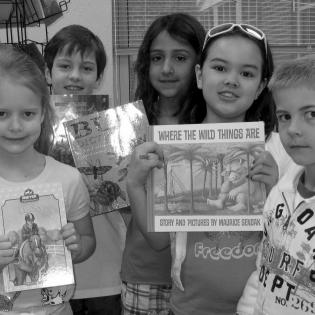Learners will examine the ethical foundations of tolerance from the Torah and understand what it means in both the religious and social context.
Filter by subjects:
Filter by grades:
Filter by audience:
Filter by issue area:
Filter by content type:
Filter by resource type:
resource search
Learners discuss the fair use of copyrighted music. They explore how downloading music and movies affects the artists and producers who created the pieces. Learners write a statement of fair use.
Students identify causes they care about and related nonprofits or community resources. They use writing as a tool to make a difference, using persuasive writing techniques.
This is an introduction to the differences and similarities between temperate and tropical rainforests. The group discusses patterns in where rainforests are located, and they begin to research characteristics and gain awareness of their biodiversity.
Through observation of the water cycle, we discuss the importance of water as a nonrenewable resource. Why is being a good steward of this resource an example of acting for the Common Good?
Researching from the perspective of one type of scientist, youth become experts on the attributes of a tropical rainforest as well as the threats to its health and impact on the globe. Youth work in teams of four to make a collage poster and presentation.
These great books help us talk about giving, social justice, diverse people and cultures, challenges people face, and the value of community. We have combined selected literature with thought-provoking discussions and activities. The conversations inspire young people to explore their philanthropic identity. Reading with someone is an opportunity for developing relationships and curiosity across ages and differences.
Students explore the components of the Preamble of the U.S. Constitution and apply them to their own lives, with a particular emphasis on philanthropy. This lesson is designed for Citizenship/Constitution Day (September 17) and connects students to the community-building focus of the...
Young people read or watch the stories of individuals (motivations, background, values) who have received the Nobel Peace Prize and analyze the importance of their actions for the common good.
Learners gain an understanding of the importance of environmental stewardship and how they can participate. Learners gain awareness that they are part of a whole and that they have a responsibility to participate in caring for the Earth.
